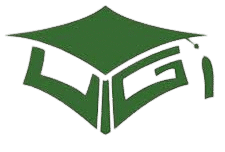In an unprecedented move to ensure academic continuity for international students, Harvard University and the University of Toronto have unveiled a joint contingency initiative aimed at protecting the educational pursuits of students facing U.S. visa restrictions.
The newly announced arrangement allows selected graduate students from Harvard’s John F. Kennedy School of Government (HKS) to continue their studies in Canada, should they encounter re-entry barriers into the United States. The initiative specifically targets students affected by recent uncertainties surrounding U.S. visa policies, which have cast a shadow over the academic futures of thousands of international learners.
In a joint statement made available to Reuters, both institutions confirmed that HKS students who have completed at least one academic year on campus in the U.S. will be eligible for a visiting student program at the University of Toronto’s Munk School of Global Affairs and Public Policy. The program promises to blend academic content from both Harvard and Toronto faculty, maintaining a seamless, world-class public policy education experience.
“This is about preserving access to education during a time of political uncertainty,” said Jeremy Weinstein, Dean of Harvard Kennedy School. He noted that the plan will only be activated based on student demand, particularly for those unable to re-enter the United States due to visa or entry challenges.
Over the last five years, international students have made up more than half (52%) of the HKS student body. According to Harvard’s International Office, 739 students from 92 countries are currently enrolled at the Kennedy School, pursuing programs focused on public policy, governance, and global leadership.
Table of Contents
TogglePolitical and Legal Backdrop
This international education backup strategy comes at a time when Harvard is under mounting political and legal scrutiny. The Trump administration has recently threatened to cut off billions in federal research funding to the university, citing alleged failures to address campus violence, antisemitism, and accusations of improper affiliations with foreign entities, including China’s Communist Party.
The move by the U.S. Department of Homeland Security to revoke Harvard’s ability to enrol international students further fueled concerns. Although the decision was temporarily halted by a federal judge, the policy’s chilling effect on academic freedom and global student mobility prompted Harvard and Toronto to act swiftly.
The Harvard-Munk contingency plan is the first known cross-border academic safety net of its kind — a proactive step in an era where geopolitics increasingly intersect with higher education access.
Stay tuned with Undergragra News for more updates on education, policy, and global student affairs.
